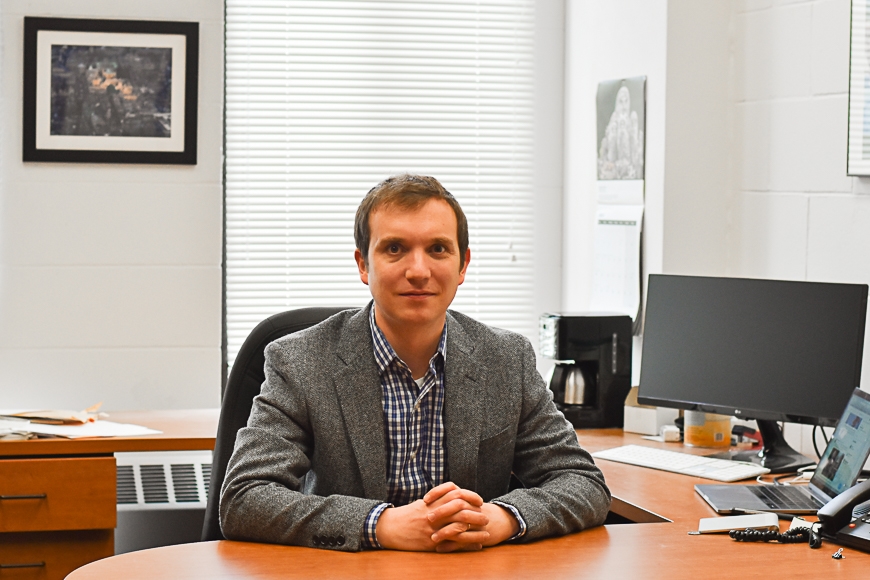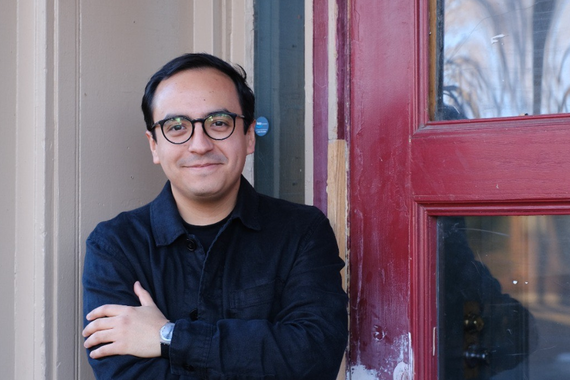Nuclear Reaction
How are nuclear weapons used by nations? How are international politics affected by a country’s nuclear arsenal? Assistant Professor Mark Bell of the Department of Political Science discusses these questions in his essay, Nuclear Opportunism: A Theory of How States Use Nuclear Weapons in International Politics, which won the Amos Perlmutter Prize, given by the editors of the Journal of Strategic Studies.
More than Just Weapons
Bell started at the University of Minnesota as an assistant professor in 2016. He teaches three undergraduate courses on US foreign policy, technology and war, and the politics of nuclear weapons.
Bell’s essay, Nuclear Opportunism, discusses “why states in different positions use nuclear weapons to try to achieve different things.” Bell tests this theory in a larger, book-length project titled Nuclear Revolutions: How States Use Nuclear Weapons in International Politics, which examines nuclear policy in the United States, United Kingdom, and South Africa, along with smaller case studies of other countries that have nuclear weapons. Both these works are extensions of Bell’s PhD dissertation.
Under Bell’s theory, each country uses nuclear weapons in different ways. “States change their foreign policies when they get nuclear weapons,” Bell says, “[the book answers] what countries think that nuclear weapons allow them to do, and how they then respond to getting nuclear weapons.” He argues that the United States uses its extensive nuclear arsenal to support its expansive foreign policy goals around the world, including defending other countries. By contrast, the United Kingdom's smaller arsenal acts more as a “last resort” for the country. South Africa is the only country to acquire nuclear weapons and then give them up. The collapse of the Soviet Union and the economic decline of the apartheid government drove the South African government to give up nuclear weapons in order to reintegrate itself into the global economy.
While Bell uses several other countries as smaller case studies, he notably stays away from examining Iran or North Korea. “For political scientists, we generally are in the business of using evidence,” Bell attests, “for countries that either have only recently acquired or haven't yet acquired nuclear weapons, we don't have a lot of evidence. We can use our theories to make predictions, but we can't necessarily use those cases to test our theories.”
Gathering evidence for the American and British cases required archival work and looking at documents that involved policy makers. In the case of South Africa, because their archives weren’t preserved well, a lot of the documentation relied on interviews that Bell conducted. “[The South African case] is interesting because the people who made these decisions and were involved in [the nuclear] program are still alive and willing to talk to people.”
Additionally, he is in the early stages of another book project pertaining to the politics of nuclear weapons.
Policy Meets Academia
Bell initially became interested in international politics when doing his master’s in public policy at Harvard. The draw of nuclear weapons issues in the context of international relations was a clear junction between policy and research.
“It was an area where academics and policymakers can interact with each other. Academic research was in some ways shaping policy debates and [vice versa],” Bell says. The crossroads of an academic career while still being involved in policy led Bell to get his PhD in political science at the Massachusetts Institute of Technology.
Despite not seeing a future directly in the political field, Bell has certainly had a voice in shaping future policy. “I've given briefings at the State Department and to think tanks in DC, so there are ways in which I've tried to engage with the policy world and policy-making process.”
This story was written by an undergraduate student in CLA.



